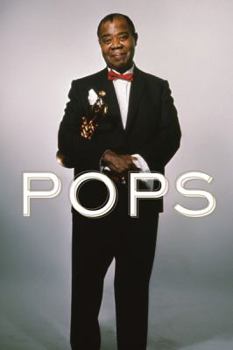Pops: A Life of Louis Armstrong
Select Format
Select Condition 
Book Overview
Customer Reviews
Rated 5 starsTeachout has scored a hit with his biography of one of the most iconic and original personalities in
In reading POPS, I figured that I was going to fill in some of the few gaps of my personal knowledge of Louis Armstrong. After all, I told myself, I played trumpet for a third of my life, have been a fan of jazz for nearly four decades, and actually own several albums of Armstrong's solo and collaborative works. So, how much more could I learn about one of my musical heroes? A lot, it turns out. My personal gaps were both...
4Report
Rated 5 starsThe Definitive Satchmo Biography
Upon hearing of Louis Armstrong's death in July 1971, Bing Crosby wrote, "I know of no man for whom I had more admiration and respect." This essential biography explains why. Nicely written and researched, Terry Teachout's "Pops" brings us closer to the man behind some of the 20th century's finest music. Armstrong loved to perform and he loved to create - simple pleasures that never left him. Teachout places Satchmo's multifaceted...
2Report
Rated 5 starsWonderful reassessment of Satchmo
To give you an idea of how much I like this book, I should tell you that half way through it I downloaded "The Essential Louis Armstrong" for my IPod so I could play the songs after reading Terry Teachout's descriptions of them. Teachout is a drama critic and a former professional musician who writes about music with an enthusiasm and detailed accuracy I have never before encountered. He takes us into Armstrong's world,...
2Report
Rated 5 starsA FIRST RATE BIOGRAPHY OF A TRUE AMERICAN HERO
Pops isn't just a good biography of Louis Armstrong's full and varied life. It's an exceptionally good biography. It shouldn't replace Laurence Bergreen's excellent Louis Armstrong: An Extravagant life (New York Times Notable Book for 1997) in anyone's library. But Teachout's book complements Bergreen's and it stand on its own as a model of sympathetic, scrupulously researched biographical writing. For those who are interested...
2Report
Rated 5 starsThe biography Pops deserves!
Louis Armstrong's music and personality made him one of the most important and interesting cultural figures of the Twentieth Century. Known around the world as a jazz musician, an actor, a showman, even a memoirist, reactions to his life have revealed cultural shifts, changing values and critical trends for decades. Some see an avant-garde musical genius, others an old-show biz trouper embodying nineteenth century entertainment...
2Report
Pops: A Life of Louis Armstrong Mentions in Our Blog

Langston Hughes described the experience of the Harlem Renaissance as "…to express our individual dark-skinned selves without fear or shame." It was a movement of the senses, steps quickened to the sound of Jazz and Blues, the air was redolent of food reminiscent of Carolina and the Caribbean, the mind was stimulated by new ideas, and the energy was like an electric current to a wire.














